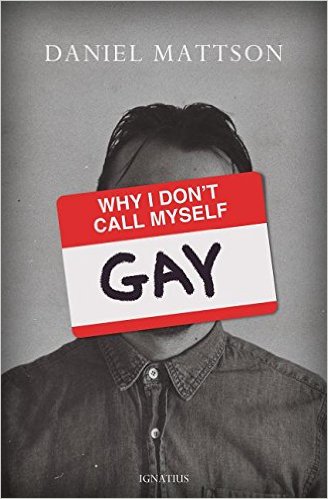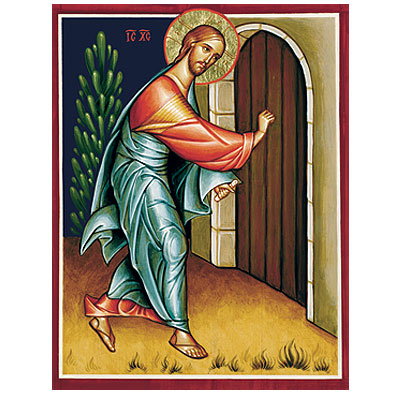By Daniel Mattson
August 26, 2012
I’m grateful God gave us the saints to inspire us. Especially the ones who lived lives like most of the rest of us: filled with weakness, foibles and falls. David is one of my favorite characters in the Bible. The man “after God’s own heart” gives me hope: continually up and down, living in times of both extreme consolation and desolation, and obviously living a life where he had difficulty controlling his passions. If an adulterer and murderer can be in God’s good graces, well there’s hope for me and the rest of humanity.
I like Jonah a lot too. God says to him, “go to Nineveh.” Nope. Off to Tarshish he goes. God hounded him, and then when he finally comes to his senses, God saves him through the most bizarre means and sends him on his mission. Then, if that’s not enough, Jonah gets angry at God for not destroying the city he was sent to warn to repent. (Isn’t this proof that God uses weak people to do his work?) The denouement, (which always makes me laugh when I read the story) is how histrionic and filled with self pity Jonah becomes when the plant dies that’s providing him shade. One of the most pathetic moments of all of Scripture comes from Jonah’s mouth:
When the sun came up God appointed a scorching east wind, and the sun beat down on Jonah’s head so that he became faint and begged with all his soul to die, saying, “Death is better to me than life.”
I’m grateful that Jonah was filled with depression and self pity, that Moses refused to speak for God, that St. Peter rebuked Christ three times, that Gideon didn’t trust God right away, and that one of our cherished saints is called Doubting Thomas.
The saints are human, just like me. Filled with ups and downs, successes and failures in virtue, and susceptible to temptation. Right now, I’m thinking of the many emotional and psychological ups and downs of David, since I find myself living in a moment of desolation.
St. Ignatius’ teaching on desolation and consolation is, well, a great consolation to me. It’s refreshing to know that these ups and downs have been the pattern of life for all the saints. I often find myself in a valley of sorts after a long trip away from home, when the reality of daily living sets in and the responsibilities which I gladly left behind make themselves known to me in stark reality. After five weeks from home, after an amazing trip across the country, it’s back to the reality of the daily grind. I don’t know what it’s like for the rest of humanity, but for me, after a vacation I’m less likely to feel a sense of rejuvenation than I am to fall into a bit of a funk for a few days–or longer.
I’ve lived long enough to know that this is the pattern of my life, but I only seem to recognize it after it happens. I don’t seem to have enough memory to know preemptively that it will happen, but every time it does, I recognize it. With the inevitable post vacation funk comes a swirl of temptations, focused on all of the ways in which I have tried in my life to find earthly consolation for the spiritual desolation I feel.
Of course, these means are always insufficient. The thing to do in times of desolation is to take it to the Cross. The only real answer that has ever been a salve for the times of desolation in my life come through the grace of God, when He seems to whisper to me, “take it up, on behalf of so-and-so.”
The temptations for me that have the greatest pull for me in times of desolation are, and always have been, related to my flesh. I want to feel good, somehow, right now. My rational mind knows that none of the sensual pleasures of the world satisfy, but the temptations that call to me with a siren song during times like these so often can overcome my reason and my resolve. How comforting it is that one of the cornerstones of our faith, St. Paul said of himself in Romans 7, “the good that I want, I do not do, but I practice the very evil that I do not want.”
It’s easy to follow God in times of consolation–which is exactly why he brings us into desolation. It’s there where we truly understand our need for Him. What makes it clear to us is when we see, as St. Paul did, “a different law in the members of my body, waging war against the law of my mind and making me a prisoner of the law of sin which is in my members.”
It is in times of desolation where we truly realize what Christ says in John 15:5, “apart from me, you can do nothing.” Though it goes against my nature, I’ve realized that the times of desolation are the ones I need to be truly grateful for, since it’s then that I realize my true need for God. It’s times like these that I echo what St. Paul said, “Wretched man that I am! Who will set me free from the body of this death? Thanks be to God through Jesus Christ our Lord! So then, on the one hand I myself with my mind am serving the law of God, but on the other, with my flesh the law of sin.”
As I walked through Costco today, restocking after my month long trip away, I realized I was walking around in the malaise of a blue funk. I felt a little sorry for myself, like Jonah did. I felt some pretty keen feelings of loneliness after spending a few nights with couples who are very much in love with each other. Our Enemy likes to whisper to me thoughts of envy when I see how nonchalantly a boyfriend caresses the arm of his girlfriend in a restaurant, showing quietly the power of touch to convey love and caring, something that those with same sex attraction, desirous of following the Church, probably won’t experience. The tender caresses of people in love I think are the easiest means by which Our Enemy desires me to envy for others, because it genuinely fills me with an aching longing to have that in my life. (I am reminded of the wise quote of C. S. Lewis: It is quite useless knocking at the door of Heaven for earthly comfort: it’s not the sort of comfort they supply there.)
Shopping for groceries for one can be a painful experience when one is in a desolation. But sometimes, as today, the grace of God shines down through the blanketing clouds like a momentary ray of light, saying, “this way.” As I walked around, filling my cart, thinking about the temptations that have been assailing me, thinking about the funk I’ve been in, it seemed God said, “For whom are you willing to carry this?”
I’m convinced God views our times of desolation as invitations. Not merely to understand our entire need for him when temptations assail us, but to unite our spiritual funk to the Cross. Literally to lift the depression we feel, willfully, onto our backs, on behalf of someone. I immediately thought of the nephew of one of my friends, who I just found out lives with same sex attraction and is right now living a secret life addicted to pornography and cruising online for guys. God brought him to mind, and through His grace asked me, “So…are you willing to strap this funk on your back, for him?” Yes, Sir, I am!
The only means of peace and joy I have ever found in times of desolation comes when God gives me the grace to carry it for others, to willfully choose it, rather than be subject to its whims. This is a powerful tool for redeeming times of desolation. The desolations of same sex attraction can be profoundly painful, and these periods of desolation in the life of so many of us, especially our experience of profound loneliness from time to time, seems to fly in the face of Christ’s words: “My yoke is easy and my burden is light,” and yet this is our call: to take it up, even if it doesn’t always feel easy or light.
I have come to think about his yoke and burden in different ways than we naturally think about, in light of the saints. St. Aelred of Rievelaux has changed my entire view of Christ’s yoke. He said the profoundly beautiful words, “His yoke is charity, his burden is brotherly love.” It’s not that the yoke and burden are easy–they become easy, because of the love of Christ flowing through us, when we choose to offer them up on behalf of someone else.
I’m reminded often in times like this of the beautiful scene in Fr. Robert Barron’s Catholicism series where he points to one of the most horrific portrayals of the Crucifixion I’ve ever seen. He points to the Cross, and says that here is a picture of the most joy filled person who ever lived. This, I’m convinced, is what it meant when Christ says His yoke is easy, and his burden is light. The pains of life become easy and light, when we choose to accept and embrace them, with our will, out of love for others. I think this is what is meant by becoming “living sacrifices.”
I don’t know how long this funk will last this time around. But through the grace of God, I’ll carry it for my friend’s nephew. It doesn’t make it less of a funk, but I’m convinced, through God’s economy, it does great good. And it makes it much more bearable.
(But I’d still like it to go away).

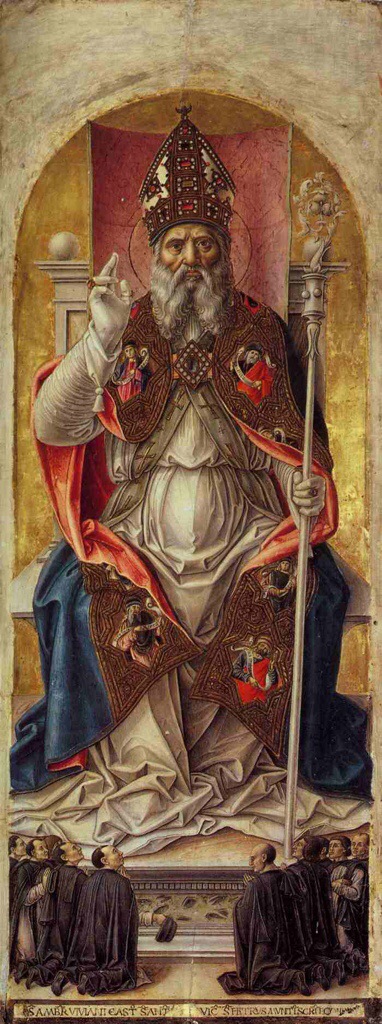
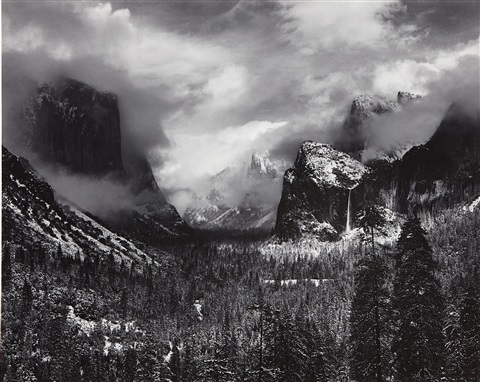
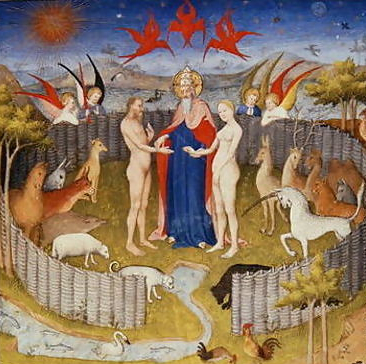 The “gay” identity is no identity at all in the Church’s teaching about the human person. Humility before my God, as a created being, allows me to accept and acknowledge the truth of my created nature: I am a created being, created by God, as a man, with an innate sexual orientation towards my sexual complement given to me by God in my created nature. My sexual identity is not as a “gay” man, but rather, simply as a man, who is created for sexual union with a woman. Humility before my God, and total abandonment to divine Providence thus makes me open to the possibility that God’s will for me may one day be to realize my innate sexual orientation in marriage with a woman.
The “gay” identity is no identity at all in the Church’s teaching about the human person. Humility before my God, as a created being, allows me to accept and acknowledge the truth of my created nature: I am a created being, created by God, as a man, with an innate sexual orientation towards my sexual complement given to me by God in my created nature. My sexual identity is not as a “gay” man, but rather, simply as a man, who is created for sexual union with a woman. Humility before my God, and total abandonment to divine Providence thus makes me open to the possibility that God’s will for me may one day be to realize my innate sexual orientation in marriage with a woman.